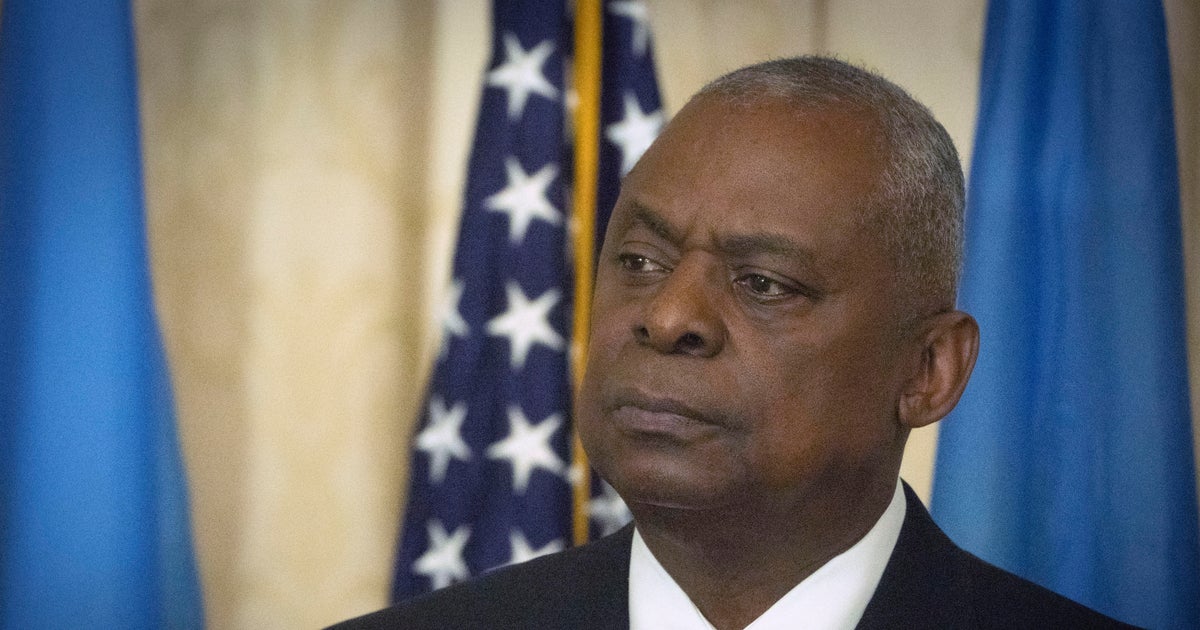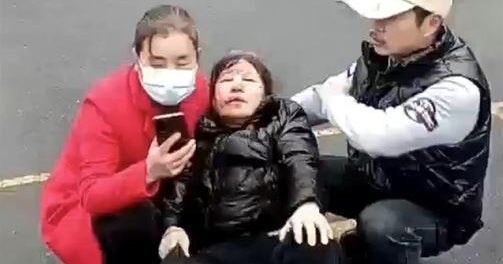Japan can't stomach dish on menu for Kim Jong Un summit
One of the sweets South Korea plans to serve up to North Korean leader Kim Jong Un at an historic summit on Friday is already proving too bitter for Japan to swallow. The mango mousse is part of a collection of dessert dishes on the menu, but the decoration adorning the fruity treat is causing friction between the Asian neighbors.
The mango mousse is decorated with a blue map symbolizing a unified Korean Peninsula, and according to a promotional image released by the South Koreans, it will include a dot representing a small island off the peninsula's eastern coast that has been the subject of a territorial dispute between Seoul and Japan.
South Korea refers to the island as Dokdo, while Japan calls it Takeshima. They sit about halfway between South Korea and Japan in the Sea of Japan, which Seoul calls the East Sea.
- Trump says N. Korea agreed to denuclearize, but that's not the case
- Where might Trump and Kim Jong Un meet?
- Sen. Tom Cotton says North's promise to halt tests "easily reversible"
"It is extremely regrettable," a Japanese Foreign Ministry spokeswoman said on Wednesday, according to the Reuters news agency. She added that Japan had lodged a protest with the South Korean government, asking "that the dessert not be served."
South Korea's Foreign Ministry had not confirmed the complaint, and it was unclear whether the small dot, or the map art, or the mango mousse in its entirety might be removed from the dessert offerings when Kim Jong Un dines with South Korean President Moon Jae-in.
The rest of the menu, at least, should prove less contentious.
Kim will be served a nod to his Swiss school days following the high-stakes meeting over the future of his nukes.
A Korean "re-interpretation" of the Swiss fried potato dish rosti will highlight the food served at a planned banquet after Friday's summit at the border truce village of Panmunjom.
Other items on the menu include fish and rice using produce from the hometowns of Moon and his liberal predecessors who sought rapprochement with Pyongyang. North Korea will bring its famous cold noodles to the dinner.
The meeting between Kim and Moon is just the third-ever summit between the rival Koreas, who are now trying to restore ties after a decade of animosity over the North's nuclear and missile program. The two countries remain technically at war because the 1950-53 Korean War ended with an armistice, not a peace treaty.
A look at the food to be served at Panmunjom:
A touch of Swiss
While not many things are known about Kim's childhood, one thing Seoul is certain about is that he spent several years in his teens being schooled in Switzerland. That means a lot of Swiss-inspired dishes for Kim at the banquet.
Aside from the Korean twist on rosti, which basically will be fried grated potato from South Korea's Gangwon province topped with cheese, the South Koreans will serve Swiss chocolate, macaroons and cheesecake in a set of desserts that Seoul's presidential Blue House has named "Memories of Swiss." As of Wednesday the controversial mango mousse was to round out the quartet of dessert options.
Kim, 34, did display a European palate last month in a Pyongyang banquet he hosted for Moon's envoys, who were served wine paired with different kinds of cheese.
After setting up the summit between Kim and Moon, South Korean officials in a subsequent trip to Washington brokered a potential meeting between Kim and President Donald Trump, which is anticipated in May or June.
South Korean meat and fish
South Korean chefs at the banquet will also serve baked John Dory fish, a tribute to the South Korean port of Busan, where the 65-year-old Moon was born. Other items on the menu include nods to the birth towns of former presidents Kim Dae-jung and Roh Moo-hyun, who met with Kim Jong Un's father, Kim Jong Il, in the two previous inter-Korean summits in the 2000s.
The chefs will serve croaker caught from Kim Dae-jung's hometown in southwestern Gageo island and rice from Roh's southern hometown of Gimhae. They also will serve grilled beef made from cattle at a ranch in the central town of Seosan. The ranch became famous in 1998 when late Hyundai founder Chung Ju-yung sent 1,001 cattle from the ranch in two separate convoy across the border to the North in an effort to aid reconciliation between the rivals.
"The welcoming banquet will reflect the desire of people who attempted to achieve peace and unification of our nation," Moon's spokesman Kim Eui-kyeom said.
There will be no dishes from South Korea's Daegu or Japan's Osaka, the respective birth towns of former presidents Park Geun-hye and Lee Myung-bak, who led a decade of conservative rule in Seoul before Moon took office but are now both in jail over separate corruption cases. Inter-Korean relations were terrible during the governments of Park and Lee, who employed a hard line against Pyongyang over its nuclear ambitions.
Famous Northern noodles
Seoul's presidential Blue House said North Korea has also agreed to bring to the dinner "naengmyeon," or cold buckwheat noodles, made by the head chef of Pyongyang's famous Okryugwan restaurant.
Moon's office said Moon proposed the restaurant's noodles to be included on the menu, to which the North "gladly" obliged. Okryugwan is arguably North Korea's best-known restaurant and has branches in China.




